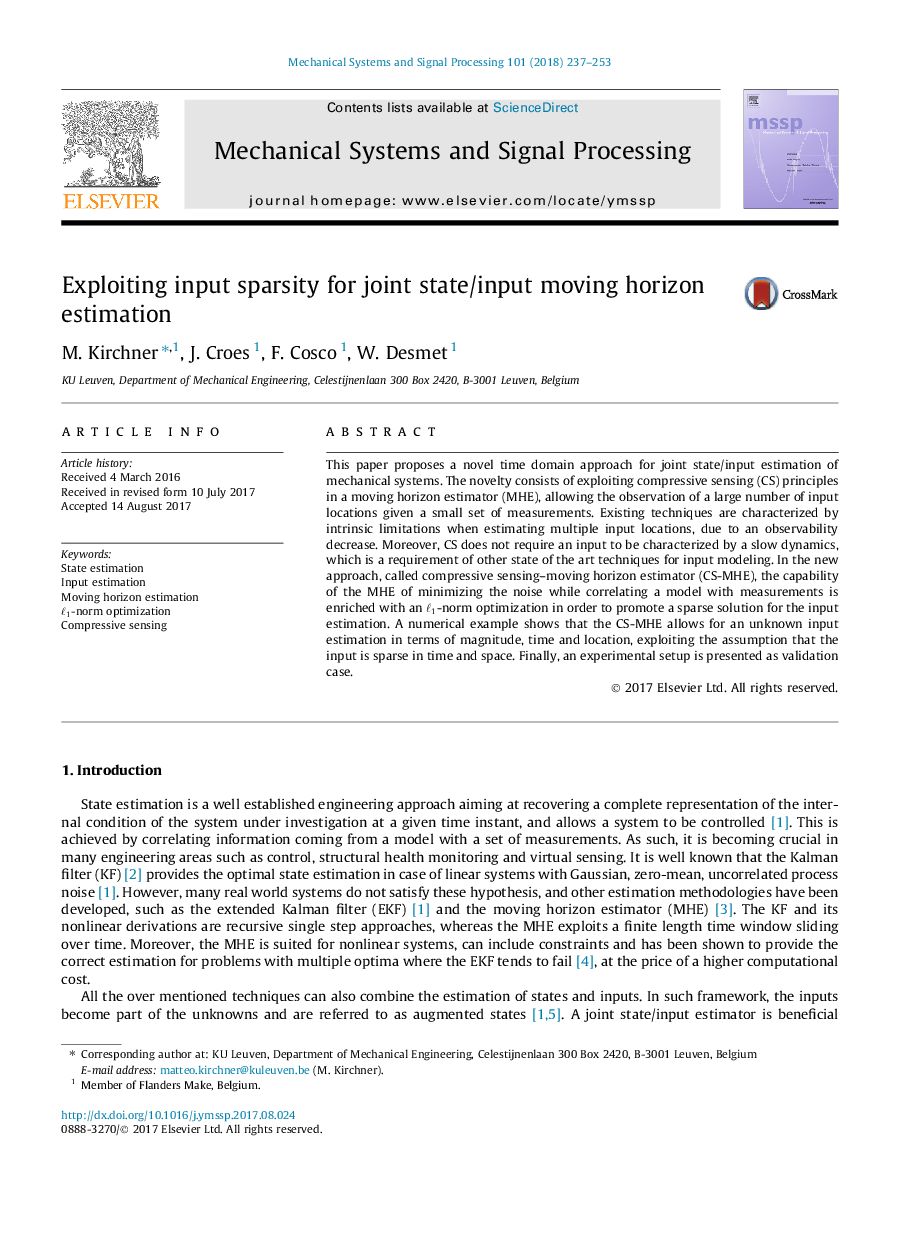| Article ID | Journal | Published Year | Pages | File Type |
|---|---|---|---|---|
| 4976601 | Mechanical Systems and Signal Processing | 2018 | 17 Pages |
Abstract
This paper proposes a novel time domain approach for joint state/input estimation of mechanical systems. The novelty consists of exploiting compressive sensing (CS) principles in a moving horizon estimator (MHE), allowing the observation of a large number of input locations given a small set of measurements. Existing techniques are characterized by intrinsic limitations when estimating multiple input locations, due to an observability decrease. Moreover, CS does not require an input to be characterized by a slow dynamics, which is a requirement of other state of the art techniques for input modeling. In the new approach, called compressive sensing-moving horizon estimator (CS-MHE), the capability of the MHE of minimizing the noise while correlating a model with measurements is enriched with an â1-norm optimization in order to promote a sparse solution for the input estimation. A numerical example shows that the CS-MHE allows for an unknown input estimation in terms of magnitude, time and location, exploiting the assumption that the input is sparse in time and space. Finally, an experimental setup is presented as validation case.
Related Topics
Physical Sciences and Engineering
Computer Science
Signal Processing
Authors
M. Kirchner, J. Croes, F. Cosco, W. Desmet,
